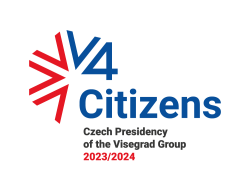
| Thu | Fri | Sat | Sun | Mon |
|---|---|---|---|---|
| 23 | 26 | 30 | 26 | 22 |
| Thu | Fri | Sat | Sun | Mon |
|---|---|---|---|---|
| 27 | 28 | 34 | 28 | 27 |
| Thu | Fri | Sat | Sun | Mon |
|---|---|---|---|---|
| 27 | 29 | 33 | 34 | 28 |
| Thu | Fri | Sat | Sun | Mon |
|---|---|---|---|---|
| 28 | 30 | 33 | 36 | 30 |
The Visegrad Group Joint Statement on the Western Balkans
The annual meeting of the Ministers of Foreign Affairs of the Visegrad Group (V4) and the Western Balkans took place in Warsaw on November 29, 2016, under the Republic of Poland Presidency of the V4. The meeting was also attended by the High Representative of the Union for Foreign Affairs and Security Policy and Vice-President of the Commission Federica Mogherini and by Bulgaria, Croatia, Italy, Romania, and Slovenia.
The V4 Ministers reiterated their continued interest in and support for the Western Balkan countries on their EU path. The EU enlargement policy provides an invaluable tool for achieving security, stability, and prosperity in the Western Balkans. As embedded in the EU Global Strategy, credible enlargement policy represents a strategic investment in Europe’s security and prosperity, and has already contributed greatly to peace. The Ministers underlined that in order for this policy to be effective and credible, it needs to be based on the principles of conditionality and merit-based individual performance.
The V4 countries welcomed the 2016 Communication on EU Enlargement Policy and annual Country Reports published on the 9th November by the European Commission. The V4 Ministers agreed that the reports provide a fair and balanced analysis of the situation in the Western Balkans. However, since there is an 18-month gap between now and the next Reports, the Ministers invite the European Commission to remain fully engaged with the individual countries and come up with an alternative way of reporting on progress in relevant areas during the course of 2017. Interim evaluation of individual progress will be crucial for Council decisions and for preserving the credibility and dynamics of the enlargement process.
The V4 Ministers appreciated the progress made by Montenegro, a front-runner on the EU integration path, including the opening of two new negotiating chapters under the Netherlands Presidency and look forward to further chapters being opened and provisionally closed in December. They commended Montenegro for its full alignment with the EU's foreign and security policy positions. Montenegro's positive role in developing regional cooperation and advancing good neighbourly relations is highly appreciated as well.
The V4 welcomed the opening of key chapters 23 and 24 with Serbia in July during the Slovak Presidency and expressed their hope for opening of further chapters in December. The Ministers appreciated the recent progress achieved in the Belgrade–Pristina dialogue on telecommunications. The V4 ministers underlined that the implementation of all past agreements and continuation of the dialogue is crucial to keep moving forward on the EU integration path. An active engagement of the High Representative of the Union for Foreign Affairs and Security Policy/Vice-President of the European Commission is essential for further success of the dialogue and the process of normalisation of relations between the two sides.
The V4 positively noted the agreement in Macedonia to hold parliamentary elections on the 11th of December and expects the authorities to ensure a credible electoral process. Furthermore, the V4 called on the political leaders to implement the Urgent Reform Priorities and political agreements of 2015, so that the European Commission can extend its recommendation to open accession negotiations.
As regards Albania, the V4 commended the adoption of the judicial system reform and welcomed the European Commission’s recommendation to start accession negotiations. Albania’s progress, particularly in reforming the judiciary, should be reflected in the December General Affairs Council conclusions. With the understanding that Albania will continue necessary reforms, the V4 hopes that the date of the beginning of EU accession talks with Albania will be announced soon.
The Ministers welcomed the advancement made in recent months by Bosnia and Herzegovina which resulted in the September Council conclusions inviting the Commission to prepare its opinion on the application for EU membership of Bosnia and Herzegovina. The Ministers encouraged the country’s authorities to focus on effective implementation of the reform agenda that will be crucial in the months to come, when Bosnia and Herzegovina will be completing the accession questionnaire.
The V4 welcomed the entry into force of the Stabilization and Association Agreement between the EU and Kosovo* in April, the European Commission’s proposal to introduce a visa-free regime for Kosovo citizens in May, and the decision to enable the participation of Kosovo in EU programs in November. The V4 ministers praised the recent launch of the European Reform Agenda with the aim of improving the rule of law and socio-economic situation in the country. The V4 underscored that the implementation of the agreements from the dialogue with Belgrade and continuation of active engagement in the process of normalisation is crucial for Kosovo’s progress on its European prospect.
Source: Ministry of Foreign Affairs of the Republic of Poland
...
*This designation is without prejudice to positions on status, and is in line with UNSCR 1244/1999 and the ICJ Opinion on the Kosovo declaration of independence.







